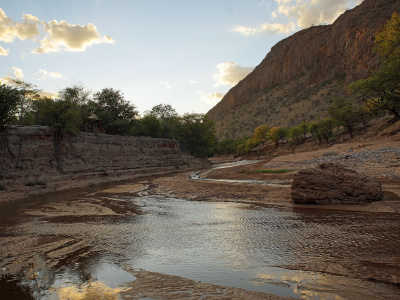
Editorial: What Prospects for a New Development Framework Post-2015?
The debate on the future development framework post-2015 is in full swing. While there is an emerging consensus that some progress has been made towards reaching the Millennium Development Goals (MDGs), most notably in terms of poverty reduction, the disparity among developing countries and across Goals remains huge, as illustrated again by the Human Development Report 2013. It is clear that efforts towards reaching the MDGs will have to continue beyond the initial deadline set for 2015.
But the world has changed significantly since the Millennium Declaration. While the principles it articulated in terms of sustainable and inclusive development remain as important as ever, there is an increasing recognition that a new approach is needed. What shape should a new global agenda on development take post-2015? That is the question currently debated worldwide.
This issue of GREAT Insights builds on some of the current initiatives and discussions to present a range of key reflections by major stakeholders in this question. These include Ms Maina from the High Level Panel of Eminent Persons on the Post-2015 Development Agenda (HLP) and other contributions at the UN level (by Ms Alarcon and by Mr Armah), reflections from the European Commission on its recent Communication (by Mr Rudischhauser) as well as insights from the European Report on Development 2013 on the post-2015 agenda, and views of other donors such as Mr Dahinden, Director-General of the Swiss Agency for Development and Cooperation. Besides the institutional setting, but as important for the debate and finally recognized as such, is the inclusion of the views of a broad range of concerned stakeholders, from academia, civil society organisations and the private sector, also reflected in this issue.
Not surprisingly, views differ. But some emerging trends can be observed. The post-2015 agenda should go beyond social objectives to embrace a truly dynamic transformative agenda for sustainable and equitable development. It should thus go beyond aid and the priorities of the donor community, draw on other (notably domestic) financial resources, include South-South cooperation and the rising role of emerging countries, tackle policy and structural issues based on domestic priorities and ownership, and build on a range of stakeholders initiatives, notably the private sector. It has also been suggested that coherence and synergy should also be found at the international level with other initiatives, such as the Rio+20 for instance for a better management of public global goods.
Surprisingly, in the shared enthusiasm to define a more ambitious and effective agenda for development, little attention has been devoted to the potential mismatch between grand political ambitions and declarations, as might emerge at the UN level for instance, and the political and vested interests to follow through with concrete actions. While setting a vision is important, it could quickly transform into a mirage in the absence of a serious reality check. If the world has changed significantly since 2000, so has the momentum that prevailed at the time, mainly among donors, to endorse the Millennium Declaration and the MDGs. The articles by Dr Green and Dr Fakuda-Parr in this issue have useful insights on this for the post-2015 agenda.
Reflecting on the paths to development is always valuable, and so the attention given to the post-2015 agenda must be welcomed. Whether it will lead to any effective new international momentum on development initiatives remains to be seen.
San Bilal is Head of the Economic Governance Programme at ECDPM.
This article was published in Great Insights Volume 2, Issue 3 (April 2013)



